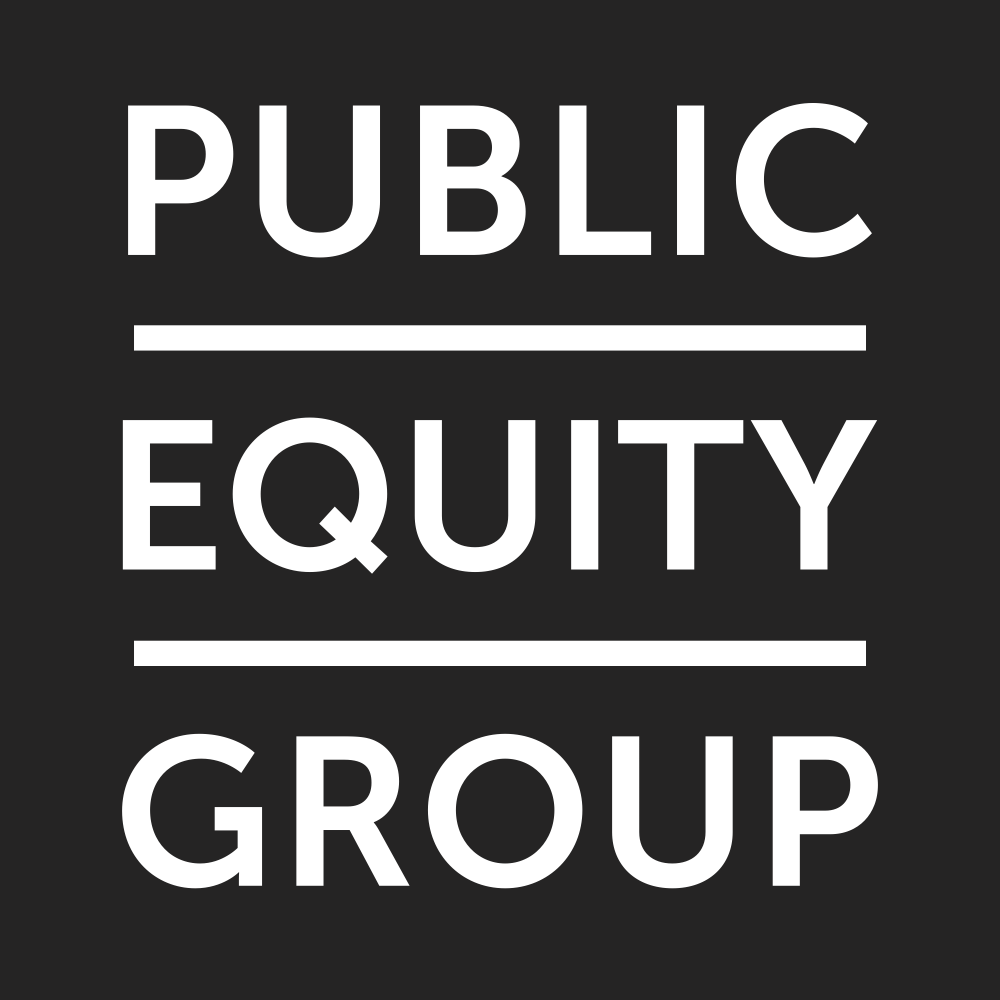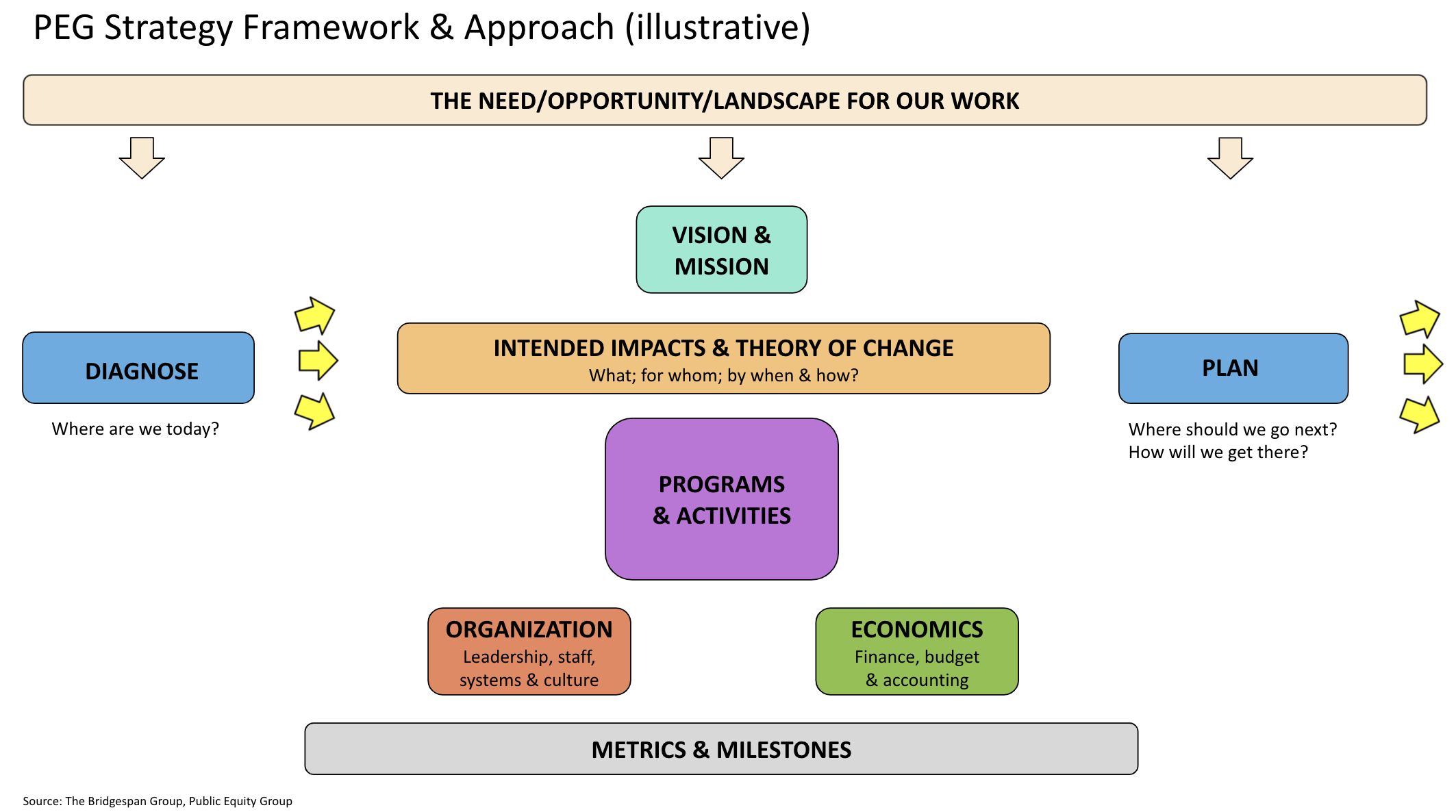Strategy
Since PEG's inception, PEG teams have engaged in strategic planning, “growth planning,” and business planning that is robust, practical, and affordable. Our strategy development work:
Begins with a diagnostic assessment of the client organization based on internal and external data (quantitative and qualitative), and landscape/market data, where appropriate;
Includes goal setting and strategic framework/Theory of Change development and operations planning; and
Culminates in summary plans that detail a client’s goals for the next three-to-five plus years, its Theory of Change, growth plans, programmatic priorities, organization (staff, skill, and system) requirements, and economic plans—as well as ongoing implementation and project management plans.
Nearly all of PEG’s clients engage with our teams in some form of strategic, growth and/or business planning work; hence, nearly all of PEG’s equity, data and decisions, and advocacy projects are simultaneously anchored in PEG strategy development.
Our strategy work often considers the consequences of growth. PEG has outlined our “efficacy before scale” framework in an article in the Stanford Social Innovation Review (SSIR). The framework reflects PEG’s strongly-held point of view that more social sector organizations should be supported and entrusted to get really good at their core work (i.e. impact) and organizational functions first, before attempting to grow.
Client Experiences
Other PEG clients also have opted to publish their summary plans, for instance:
Education Through Music created this plan synthesis (and accompanying case studies [A & B] published by NYU's Wagner Graduate School of Public Policy) and;
Selected PEG strategy development, growth planning, and/or business planning clients:
PBLWorks (formerly the Buck Institute for Education)




